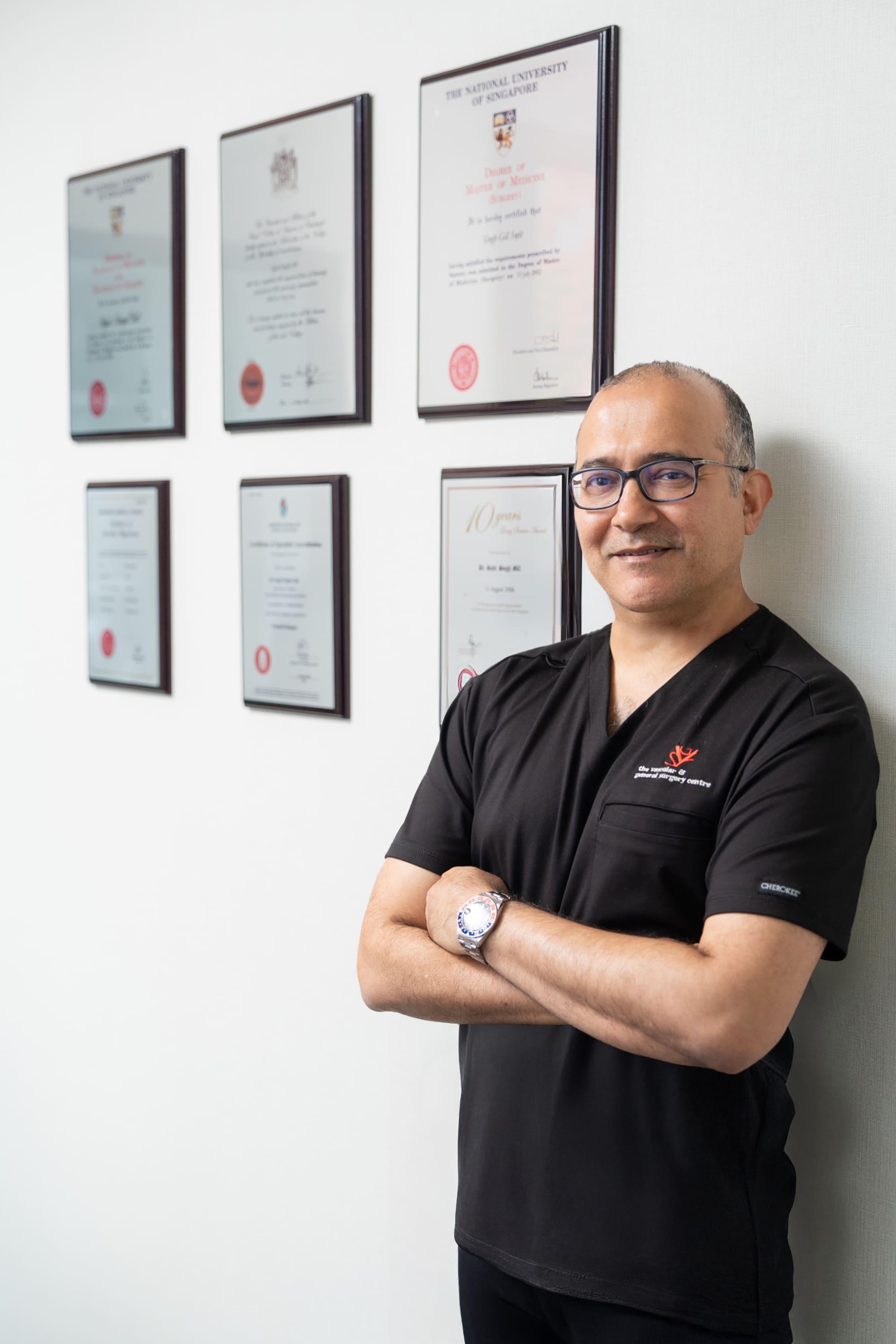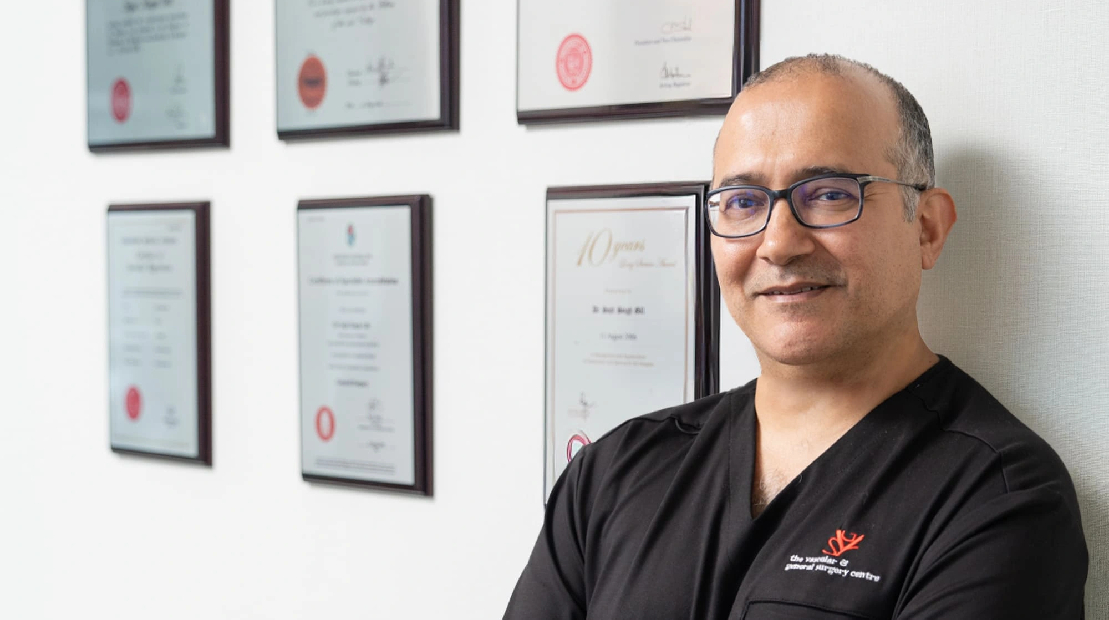Varicose veins affect about one in three adults and are more than just a cosmetic issue. They can cause aching, heaviness, and, in advanced cases, skin changes or even ulcers. Fortunately, patients in Singapore have access to some of the most advanced minimally invasive treatments available today.
Dr Sujit Singh Gill details each treatment option in this article, explaining who can benefit the most and what to expect during recovery.
1. Endovenous Thermal Ablation
Endovenous thermal ablation techniques use heat to close off problematic veins, offering effective, minimally invasive solutions for varicose veins.
Endovenous Laser Ablation (EVLA/EVLT)
In Endovenous Laser Ablation (EVLA or EVLT), a thin laser fibre is carefully inserted into the faulty vein. Targeted laser energy then heats the vein from within, causing it to collapse and seal shut. The treatment usually takes less than an hour, is performed under local anaesthetic, and requires no downtime, allowing a quick return to daily activities.
Radiofrequency Ablation (RFA)
Radiofrequency Ablation (RFA) utilises radio-wave energy delivered via a specialised catheter, such as the VNUS ClosureFast device. Similar to EVLA, this controlled heat seals the diseased vein. Local studies have shown that RFA generally results in less bruising and reduced post-procedure pain compared to EVLA. For these reasons, Radiofrequency Ablation is Dr Gill's preferred first-line thermal treatment option.
2. Non-Thermal, Non-Tumescent (NTNT) Techniques
Non-Thermal, Non-Tumescent (NTNT) techniques offer advanced, heat-free alternatives for treating varicose veins. These options eliminate the need for extensive local anaesthesia required in thermal procedures.
VenaSeal™ Cyanoacrylate Closure
VenaSeal™ utilises a medical-grade adhesive, delivered through a micro-catheter, to permanently seal the diseased vein. Clinical studies report closure rates of 94–99% at six months, with no risk of heat-related nerve injury.
ClariVein® (Mechano-Chemical Ablation)
ClariVein® employs a rotating wire within the catheter that irritates the inner lining of the vein while simultaneously delivering a chemical agent. This dual action effectively closes the vein without the use of heat or tumescent anaesthesia. ClariVein® is particularly well-suited for patients who prefer to avoid multiple needle injections.
3. Chemical & Micro-Surgical Options
These methods offer targeted treatments for varicose veins:
- Ultrasound-Guided Foam Sclerotherapy (UGFS): A medical foam is injected into the vein under ultrasound guidance, causing it to scar and close. This treatment requires little or no anaesthesia and is particularly effective for recurrent veins, tributaries, and is considered the gold standard for residual spider or reticular veins.
- Ambulatory Microphlebectomy: Performed under local anaesthesia, this procedure involves tiny skin nicks to directly remove bulging surface veins. It is especially useful for treating residual varicosities after other interventions.
- Compression Therapy: This is a non-invasive option for treating varicose veins. It uses graduated compression stockings to improve blood flow and ease symptoms. Compression therapy is commonly recommended for symptom relief during pregnancy.
Why Choose Dr Sujit Singh Gill
Dr Sujit Singh Gill brings 25 years of extensive vascular experience and was among the early adopters of advanced endovenous techniques in Southeast Asia. His practice, conveniently located at Paragon Medical Suites on Orchard Road, is equipped with on-site duplex ultrasound, allowing for same-day diagnosis and streamlined patient care.
Book a consultation or call +65 6736 2302 to discuss which option suits your lifestyle, anatomy and insurance cover.
Frequently Asked Questions (FAQs)
During EVLA, local tumescent anaesthetic is used to numb the area, which effectively minimises discomfort. Patients can typically walk immediately after the procedure.
Treated veins are permanently sealed or removed by the procedure. However, new varicose veins can develop over time if underlying venous reflux (blood flowing in the wrong direction) recurs in other veins. Regular follow-up reviews are advised to monitor for any new developments.
Dr Gill generally allows short-haul flights after 48 hours for NTNT procedures. However, it is crucial to confirm this during your review, as guidance depends on the specific treatment and individual health factors.




